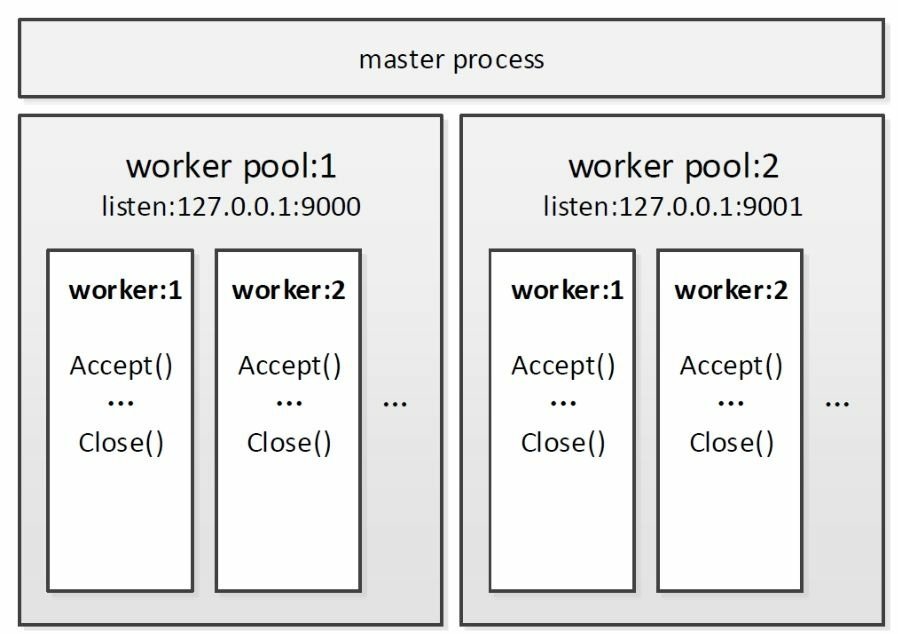Mastering Swoole PHP
讀書會#1
12/23
19:30~21:00
@17Live 大樓三樓 銀河灰會議室
About This Book
Zeev Suraski
Co-founder of Zend, Co-architect of PHP

"Swoole is a strategic development in the evolution of PHP, bringing high performance async-IO based apps to the mainstream of the platform. This book is everything you need to unlock that power of your new async-PHP apps!"
"Swoole is a tremendous technology and a game changer for PHP developers. I started to play with it in 2017 and I created the first runtime for Expressive framework. The results have been incredible, huge performance improvement without using a web server, amazing! If you want to design asynchronous applications in PHP the book of Bruce Dou is a must."
Enrico Zimuel
Member of PHP-FIG and co-author of Expressive and Zend Framework
About This Book

-
Background
-
General concepts
-
The practical world on Linux OS
-
Connect with protocols
-
Swoole runtime and internal
-
Hands on Swoole PHP
-
Use cases and patterns
26
77
33
28
40
37
64
What is Swoole?
-
Since 2012
-
Open source based on Apache-2.0 License
-
16.3k start on Dec. 2020
-
More than 100 contributors
-
Adopted by many enterprises in China
-
Swoole Plus for enterprise support

What is Swoole?
-
Not a new language, but an extension for PHP
-
Provides many new features for traditional PHP
-
New lifecycle in Swoole
-
Server patterns, coroutine, async I/O, Process Management, etc.
-
It's still under active development
-
Stable for production environment
-
High performance

Stateless PHP
-
How do we serve PHP today?
-
PHP-FPM
-
mod_php for Apache
-
-
Both patterns are all stateless
Stateless PHP
-
Pros
-
Easy scaling
-
Simple, less risk causing memory leaks
-
-
Cons
-
States can't be shared between requests
-
States must rely on external storages
-
Resources can't be reused efficiently
-
Connection cost is expensive (like database)
-
Not good for high performance
-
PHP FPM
-
FPM (FastCGI Process Manager)

PHP FPM

PHP Architecture
-
SAPI: Adapters like PHP-Cli, PHP-Fpm or embeded
-
ZendVM: Composed with Compiler and Executor, like JVM in Java
-
Extension: Including PHP Extension and Zend Extension

PHP Lifecycle

Blocking I/O in PHP

blocking I/O model
Blocking I/O in PHP
- PHP is originally created as glue layer to call C functions
- The I/O model is blocking by default
- Almost all client-side libraries involving I/O are blocking
- Multiple process for handling blocking I/O
- I/O bound concurrency depends on process number
- Cost for context switch in processes is expensive
Performance Problem
Identify the bottoleneck first!
Performance Problem
- Are we wasting resources by not using the reusable variables?
- Do we request the same data not changed from the database for each request?
- Are we requesting the data not used by the current request?
- Can we cache the remote data locally?
- Can we use async I/O instead of blockingI/O to save processes?
- Can we defer the heavy task by sending them into a queue and executing them separately?
- Etc.
Performance Problem
-
Resource can't be reused
-
I/O requests are blocking
-
80% time cost on blocking I/O
Execute PHP Code
Initialize PHP Code
Database Request
HTTP API Request
Response
Include PHP Files
Concurrency Problem
-
100 requests at the same time need 100 processes
-
100 connections will be established as well
-
Scale to increase concurrency
Concurrency Problem
-
Synchronous Process

Concurrency Problem
-
Asynchronous Process

Concurrency Problem
-
Asynchronous Process
- Save data into a queue then ACK back to the client
- Check process status periodically
- Waste resource for checking requests
- Main process lost the control about these requests
- Not applicable for dependent requests
Concurrency Problem
-
Fast and Slow Components

Concurrency Models

Concurrency Models
-
Actor
-
Erlang
-
-
CSP (Communicating Sequential Processes)
-
Golang, Swoole
-
-
STM (Software Transactional Memory)
-
Clojure
-
-
Guilds
-
Ruby 3
-
Don't communicate by sharing memory; share memory by communicating. (Rob Pike)
Concurrency Models
-
Actor
-
Multiple actors can run at the same
-
Each actor has its own identifier and internal states
-
Actors communicate with each other by sending asynchronous messages
-
Every actor has an mailbox (queue)
-
Actors are isolated
-

Concurrency Models
-
CSP
-
Decoupled by channel
-
Pub/Sub Pattern
-
Shared memory and lock are implemented in channel
-
Only one active consumer can access data
-
Processes are anonymous
-

Concurrency Models
-
STM
-
Use shared memory
-
No need for lock
-
All changes of data are encapsulated in transactions
-
Every thread has a copy of its working data and can change its value
-
Like transactions in database
-

Concurrency Models
-
Guild
-
Threads from different guilds can run in parallel
-
Threads that belong to the same Guild can’t execute in parallel (GGL)
-
Immutable objects can be shared (read) across Guilds
-
Guilds can communicate with each other using channel (deep copy)
-

Reference
- Mastering Swoole PHP